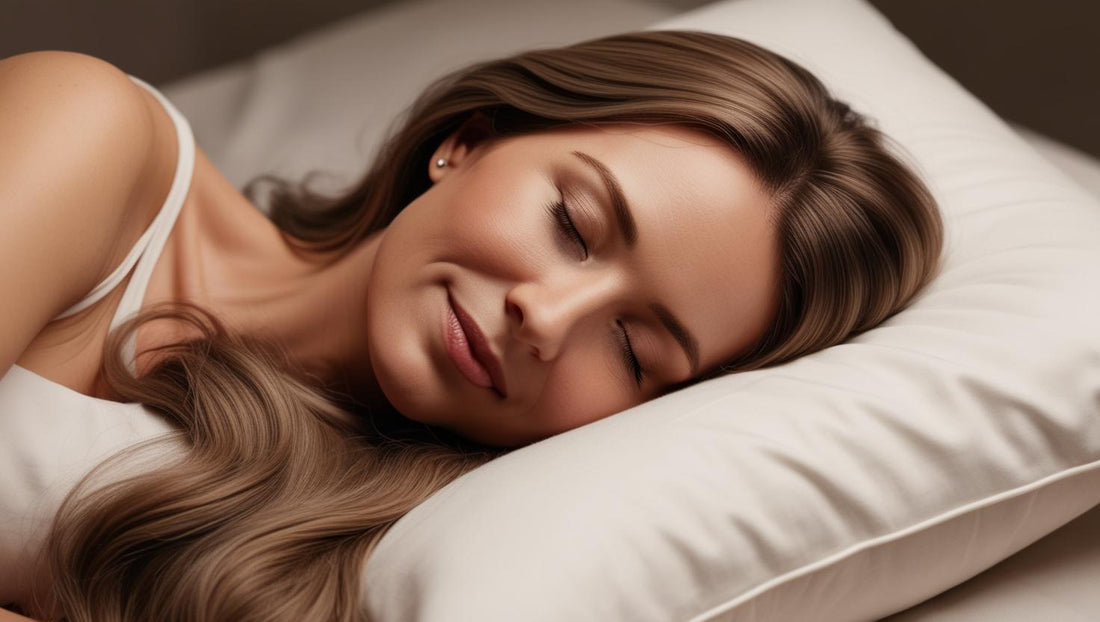
Beauty Sleep: The Best Time to Sleep for Skin Repair
Share
We all know the term "beauty sleep" - but is there any truth behind it? The answer is clearly yes. Beauty sleep refers to deep, restorative sleep that allows your body, especially your skin, to repair and regenerate overnight. Scientific studies confirm that a good night's sleep goes a long way toward collagen production, cell renewal and moisture retention - all of which contribute to a radiant complexion.
Beauty sleep
During beauty sleep (usually between 10 pm and 2 am, when growth hormone peaks), your skin repairs damage caused by UV rays, pollution and stress. On the other hand, insufficient sleep can lead to dull skin, dark circles and accelerated skin aging. The link between sleep and beauty is undeniable: Lack of sleep increases cortisol levels (the stress hormone), which breaks down collagen, while deep sleep boosts blood circulation and provides a natural glow.
Deep sleep promotes skin regeneration
During deep sleep (NREM stage 3), the body enters a critical repair phase and skin regeneration accelerates. This phase causes a 60-70% increase in growth hormone release and stimulates collagen production and keratinocyte renewal - an important process for maintaining skin elasticity and barrier function. Blood flow to the skin increases by 40%, providing oxygen and nutrients. At the same time, the breakdown of free radicals is improved to offset daily damage caused by UV rays and environmental pollution.
The Effects of Sleep Deprivation on Skin
Studies have shown that lack of sleep can exacerbate facial skin sallowness. People who are sleep deprived appear to others to be paler, less healthy, and less attractive than when they are well-rested.
Chronic sleep deprivation damages your skin and accelerates the signs of aging. When sleep quality decreases, cortisol levels rise by 37%, causing collagen and elastin to break down, resulting in fine lines and loss of firmness. Reduced melatonin production weakens the skin’s antioxidant defenses, leading to free radical accumulation and oxidative stress, which manifests as dull skin and uneven skin tone. Studies show that just two nights of sleep deprivation can increase transepidermal water loss by 30%, which can increase dryness and damage the skin barrier.
Lack of sleep can also trigger systemic inflammation, worsening symptoms like acne, eczema, and psoriasis. The lack of deep NREM sleep prevents proper cellular repair, slowing wound healing by up to 50%. Over time, chronic sleep loss degrades the skin's structural proteins at twice the normal rate, prematurely advancing skin aging. For optimal skin health, prioritizing 7-9 hours of quality sleep nightly is essential to maintain skin's youthful resilience and glow.
How to Optimize Sleep for Skin Repair
Quality sleep begins with an effective pre-bed skincare routine (before sleep face care). Cleanse thoroughly to remove pollutants, then apply products with ceramides or peptides to support overnight repair. Creating the right sleep environment is equally vital: keep your bedroom cool (60-67°F), use blackout curtains, and consider relaxing sleep music or guided sleep meditation to ease into deep rest. These practices lower cortisol by 30% while boosting melatonin production.
Conclusion
These mechanisms prove that "beauty sleep" is a biological fact—not myth. Prioritizing uninterrupted deep sleep may be the most powerful anti-aging treatment available. So, if you want healthier, younger-looking skin, prioritize those precious hours of rest—your complexion will thank you!